Downfall of disgraced millionaire and Ponzi scheme conman Ken Grace exposed in court documents
The dramatic slide of fake investor Ken Grace has been laid bare, days after the high-flying conman was found dead in a hotel room ahead of his sentencing over a multimillion dollar Ponzi scheme.
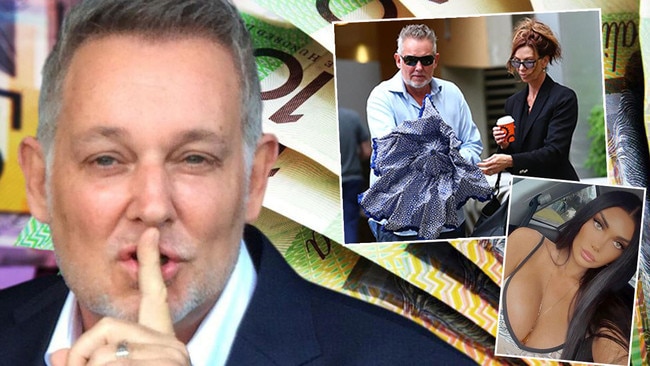
NSW
Don't miss out on the headlines from NSW. Followed categories will be added to My News.
A high-flying conman believed to have suicided in a Sydney hotel on the day he was due to be sentenced for a multimillion-dollar Ponzi scheme had twice tried to take his own life in the years since his sensational rort was exposed.
The dramatic downfall of fraudster Kenneth Charles Grace, the brains behind the astonishingly elaborate financial scam that was fake investment company Goldsky, has been laid bare in never before seen court documents, which detail the case against him, as well as the hedonistic combination of drugs, booze and greed that fuelled his crimes.
The documents reveal Grace went from a suave, high-flying hedge fund manager living in a million-dollar beachside house and flying on private jets, to a drug-addled recluse subsiding on welfare payments while sleeping on his mum’s sofa.
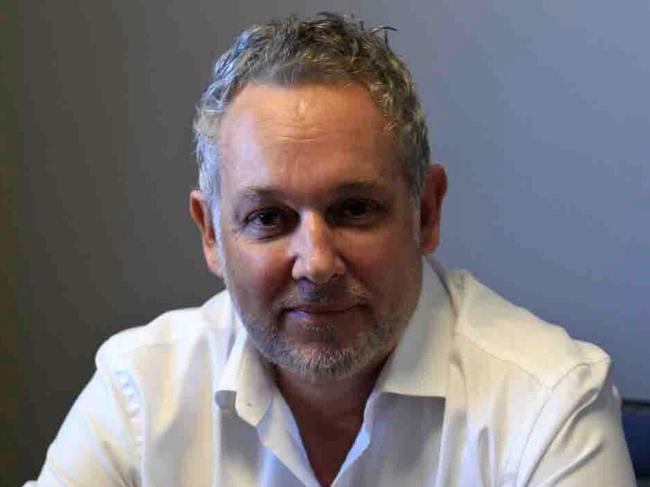
They further reveal Grace once described himself to a treating psychologist as being “touched by the devil and becoming one”, and privately feared he would be compared to disgraced Australian billionaire and convicted fraudster, Alan Bond.
At his lowest, he attempted suicide twice — once in October 2019, after the breakdown of his second marriage, and again in October 2023, just days before his first sentencing date.
Grace was subsequently hospitalised and his case stood over to last Thursday.
When he failed to show up to court in Sydney, Judge Siobhan Herbert issued a warrant for his arrest.
Grace’s body was discovered later that day at a motel in Foveaux St, Surry Hills.
He was 58.
THE RISE
Court documents said Grace had lifted himself from an impoverished and traumatic childhood to make a successful career as a car salesman, earning enough money to dabble in personal investing.
After some success, friends began asking him to invest on their behalf.
According to prosecutors, Grace had no financial qualifications of any sort, had never held a financial licence, and was in no way authorised to operate a legitimate private investment firm.
But he was ambitious — and with a glamorous new wife, a $7000 a week cocaine habit and a penchant for weaving an extraordinary but highly convincing web of lies — a fake hedge fund was born.
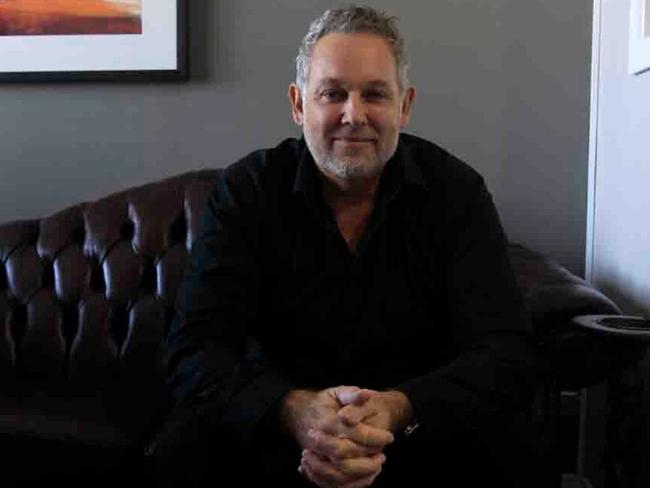
Court documents said Goldsky’s investors included Grace’s friends, former work acquaintances and word-of-mouth referrals, as well as some who chanced upon the company’s website, which was littered with slick-looking marketing material boasting returns of 20 per cent per year.
According to prosecutors, unsuspecting investors funnelled $38.6m into Goldsky between January 2014 and October 2018, absolutely none of which was invested by Grace or his team.
Instead, Grace used $10.5m to fund his lavish lifestyle, including purchasing luxury cars and jewellery, a $1.5m home in Kingscliff, going on overseas holidays and wining and dining at top restaurants.
According to separate proceedings heard in the Federal Court, Grace also used cash from investors to hire a private jet for his stepdaughter so she could fly to Queensland to Sydney to get breast implants.

The Federal Court was told some of those who invested with Grace included former AFL player and assistant coach Simon Black, former AFL player Clark Keating Melbourne Storm’s head of performance Lachlan Penfold, former Olympic swimmer Sam Riley and Olympic cyclist Robbie McEwen.
None of those named above are named in the current proceedings.
None of Grace’s family members, nor any investors, are accused of any wrongdoing.
Grace also used some funds to launch a homeless youth charity, Sleep Safe Sleep Sweet, with World champion surfer Joel Parkinson, McEwen and boxer Jeff Horn as ambassadors.
There was no suggestion of wrongdoing by the sports stars.
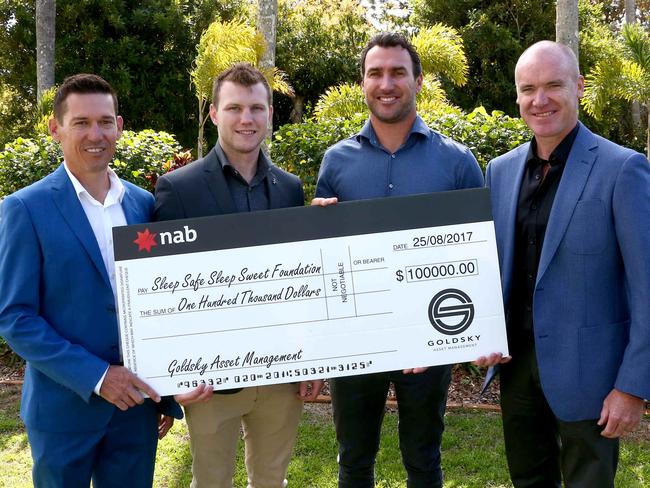
The charity never lodged a financial report and Grace’s promise of $100,000 and ongoing input via client fees never materialised.
Court documents said the remaining funds from the $38m were shuffled around between clients over the years, dressed up to look like dividends paid on their investments.
The payments were often accompanied by flash-looking documents, financial reports and marketing material espousing Goldsky’s outstanding market performances, or reciting Grace’s impressive professional and educational background.
It was all blatant lies, but that didn’t stop Grace from setting his sights on a larger market – the USA.
THE FALL
Grace took Goldsky international in 2016, obtaining an investment advisory licence in the US after falsely claiming his fund managed more than $100m in public and private funds.
Ironically, Grace’s plans for expansion ultimately proved his undoing, beginning with an unsuccessful attempt to use the US approval to apply for an exemption on financial advice licensing requirements in Australia.
The application sparked an investigation by the US Securities Exchange Commission, and Grace and Goldsky were subsequently fined $US75,000 in January 2019.
Meanwhile, back in Australia, authorities had already begun moving against Grace, with the Supreme Court of Queensland freezing his assets in October 2018.
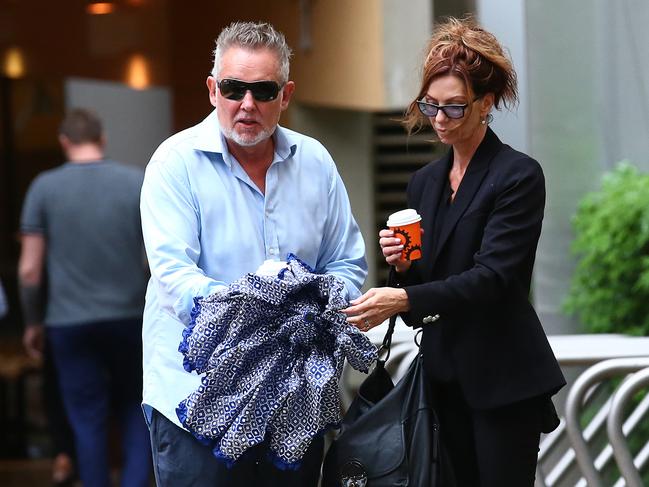
The decision attracted media attention and Grace soon found himself fielding calls from concerned clients.
He assured them their money was safe but it wasn’t long before each of the investors realised they’d been had.
Grace’s victims, identified in court papers as Terence Heyer, Helen LeFebvre, Andrew Woods and Cameron Tregaskis, Glenn Cartwright and
Philip Smithers and Dean Ryan, lost a combined $9.8m to the scam through dozens of bogus investments.
Grace was charged in April 2021 following a lengthy investigation by Australian Federal Police.
He pleaded guilty to five counts of engaging in dishonest conduct in relation to a financial service, after striking a plea deal with prosecutors.
Court documents said liquidators were able to salvage some assets and physical property but estimated investors would be lucky to see a return of six cents on the dollar in civil proceedings.
THE FALL(OUT)
Grace’s life quickly came crashing down.
Ahead of his sentencing, according to court documents, he told his treating psychologist his second wife left him for another man shortly after the allegations first aired. He’d lost all his friends and had been forced to move into his mother’s one-bedroom unit to survive.
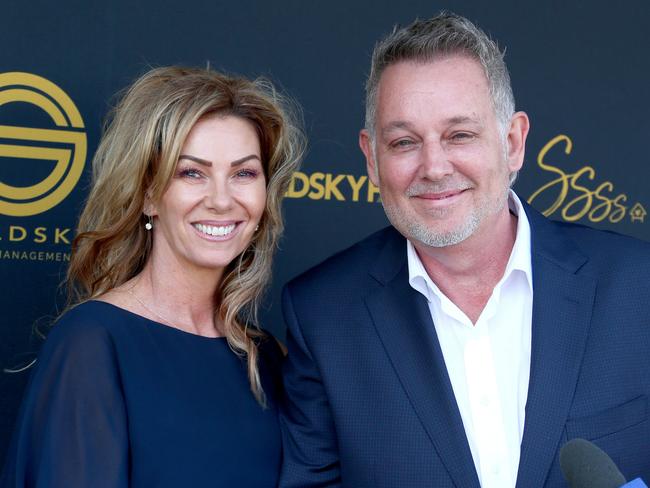
Grace also said he suffered from PTSD, had panic attacks from time to time and experienced agoraphobia.
When asked about his crimes, Grace said he had been “in a drug haze” for most of the time he’d been operating Goldsky and had been fuelled by a desire to fund a lifestyle of “fancy hotels and private planes”.
“Things were falling apart for me,” he said, referencing his substance addictions and failing marriage.
Grace told the psychologist he was sorry for the hurt and pain he’d caused his victims, saying he’d hoped to be able to cover his tracks and recoup everyone’s money before things “got out of hand”.
“I thought I could trade my way out and shut it down,” he said.
“]I] never intended to lose anyone’s money”.
If you need help, call Lifeline: 13 11 14, lifeline.org.au





